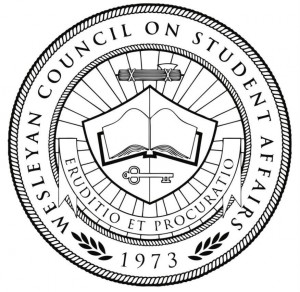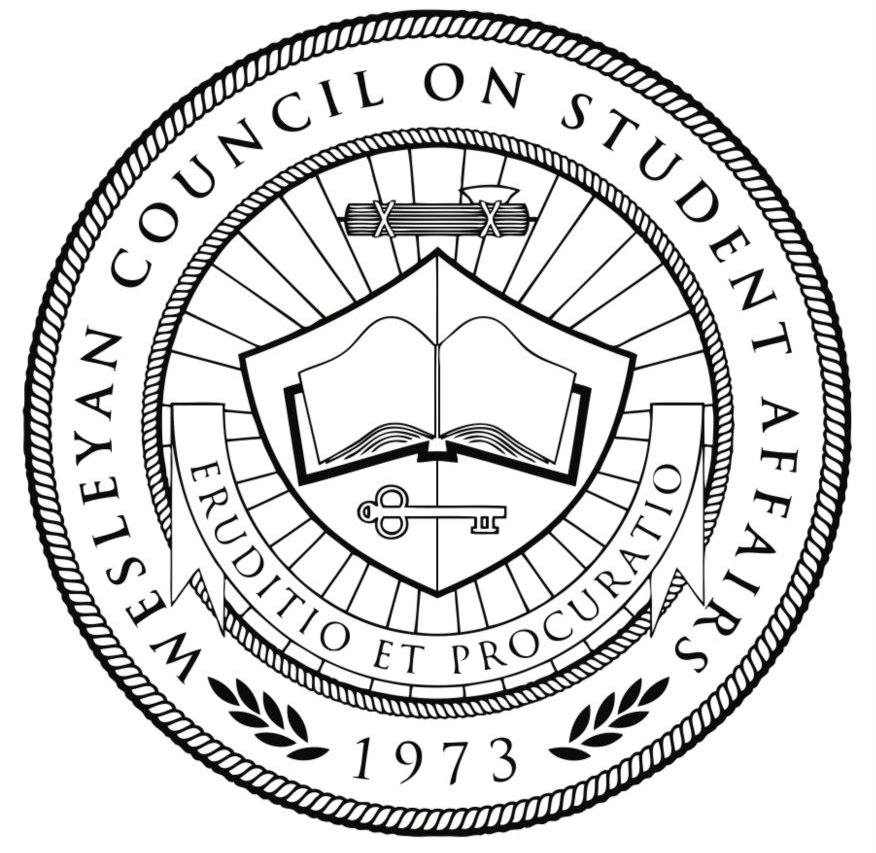
The candidates for the Wesleyan Council of Student Affairs’ highest offices have some similarities. All four are juniors, all are in Greek organizations and they presented three-point platforms with their respective running mates at Monday’s debate.
But they differ in prior experience with the Council. Jerry Lherisson and Emma Drongowski, running for president and vice president respectively, have both held a WCSA position since the spring semester of their freshman year. Their opponents, Sergio Orozco for president and John Wainwright for vice president, are making their first foray into student government
Wainwright said he thinks he and Orozco being newcomers gives the election, in which students will vote Friday, a “fun dynamic.” They bring “new ideas and new blood” to WCSA, Orozco said.
“When people complained about what the school’s doing wrong and no one’s do anything about it, I just felt I can do something about it, and I really want to do something about it,” he said.
Their platform consists of three specific goals: extending Beeghly Library’s hours, starting a recycling intiative to clean up Fraternity Hill, and working to allow seniors to live off campus as long as they have a 2.75 grade point average and no “charges or convictions” against them, Wainwright said.
Lherisson, WCSA’s current vice president, and Drongowski, a class of 2016 representative, continue a pattern of the body’s members moving to higher positions each year. The past three presidents sat on the executive committee, made up of the top officers and the class representatives, when they campaigned for the position.
Their platform centers on the overarching goal of improving Ohio Wesleyan’s retention rate, both by bolstering programs for first-year students and working with financial aid personnel to assauge students’ financial difficulties, and increasing student engagement with the university’s administration.
They plan to work with administrators to increase new students’ enrollment in university courses, such as UC 160, “The OWU Experience”; as well as FreshX and the Office of Multicultural Student Affairs’ pre-orientation programs. These latter two help retention, Lherisson said — 87 percent of students who go through them graduate from OWU in five or fewer years.
WCSA should focus on “ramping up” opportunities and resources already available to students rather than creating new ones, Drongowski said, debating via Skype from Cincinnati, where she has been campaigning for state legislature candidate Micah Kamrass. She said she and Lherisson would encourage students to engage with key issues facing the university through faculty committees and departmental student boards.
The pair’s movement up the Council’s executive hierarchy is typical, according to current WCSA president Lauren Holler, a senior. She said the last time two candidates for the top offices came from outside the body was her freshman year, so she is “excited” to see Wainwright and Orozco do it again.
“Once people are involved in WCSA, they start to learn the inner workings of it, they find their niche, they find out how (they) can make a difference on campus,” she said. “So to me it kind of makes sense. Once you get involved, if you’re ambitious and have things you want to get done, you want to move further up the chain.”
The winning candidates will start their administration in the midst of conversations about changing OWU’s smoking policy and forming a gender-inclusive housing policy. They will also be the first to select a treasurer from a pool of applicants since WCSA made the job an appointed position.
Sophomore Lee LeBoeuf is continuing another trend as the third consecutive unopposed candidate for secretary. Holler said she thinks other potential candidates might have been “intimidated” to take on LeBoeuf, a current class of 2017 representative, because of her WCSA experience.
The Council’s election cycle is shorter this year, with votes for executive officers and class representatives a week apart with a week of campaigning before each. The hope was that the more condensed cycle would “keep the energy going,” Holler said, increasing the number of voters participating and candidates running for positions.
This article was corrected to say that WCSA treasurer is not a paid position under the new appointment process.
